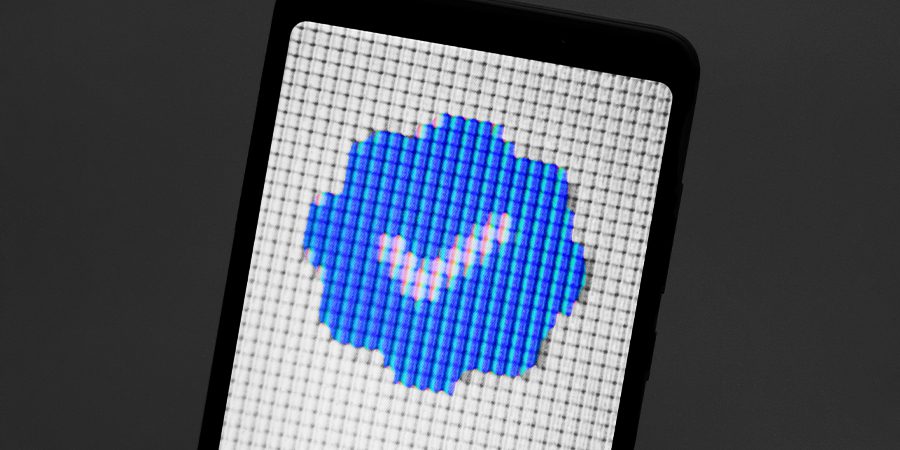In this article, we’ll examine the recent controversial move by Twitter to add verified checks to the accounts of deceased celebrities, seemingly to promote Twitter Blue subscriptions, and the potential legal consequences that may follow.
Key Takeaways:
- Twitter has added verified checks to the accounts of dead celebrities, making them appear as Twitter Blue subscribers.
- The move is speculated to be an attempt to market the unpopular Twitter Blue subscription service.
- Posthumous Twitter Blue badges may potentially violate California’s Civil Code 3344.1, which protects consumers from false endorsements.
- Elon Musk, CEO of Twitter, has been involved in controversies surrounding the platform’s verification process and Twitter Blue.
Twitter’s Controversial Verification of Dead Celebrities
In a surprising development, Twitter has added verified checks to the accounts of several late celebrities, making them appear as Twitter Blue subscribers.
The list includes Kobe Bryant, Norm Macdonald, Anthony Bourdain, Chadwick Boseman, and Michael Jackson.
These high-profile individuals received posthumous blue checks on their Twitter profiles as the platform began purging legacy verifications.
Twitter has shifted its focus to displaying checks only on profiles that pay for the Twitter Blue subscription service.
This controversial move has generated confusion and speculation regarding Twitter’s motives.
However, representatives for the Bryant family and Boseman’s former manager have not yet commented on the situation.
The Struggle to Promote Twitter Blue Subscriptions
Twitter Blue, a subscription service available for $8 per month, has struggled to attract new subscribers since its relaunch.
Estimates by programmer Travis Brown suggest that fewer than 600,000 accounts pay for the service.
Campaigns to block users with paid-for verification badges have emerged on the platform.
The addition of verification badges to deceased celebrities’ accounts is now speculated to be an attempt to market the unpopular service.
However, it remains unclear whether the estates of these celebrities have consented to the verifications or if the blue checks were added without their knowledge.
Legal Implications of Posthumous Verifications
The posthumous Twitter Blue badges may potentially violate California’s Civil Code 3344.1, which protects consumers from false endorsements.
The law stipulates that any person who uses a deceased personality’s name, voice, signature, or likeness for advertising or selling products without consent may be liable for damages.
Alejandra Caraballo, a clinical instructor at the Harvard Law Cyberlaw Clinic, tweeted that falsely adding a blue check to high-profile accounts might constitute a deceptive trade practice.
She added that individuals given the verification without their approval could have grounds to bring a false endorsement claim, separate from an FTC investigation over deceptive trade practices.
When Insider reached out for comment, the Twitter press email responded with a poop emoji. Elon Musk, Twitter’s CEO, did not immediately respond to requests for comment.
Elon Musk’s Role in Twitter’s Verification Controversies
Elon Musk, the CEO of Twitter, has been involved in several controversies surrounding the platform’s verification process and Twitter Blue.
He has not directly commented on the deceased celebrities’ accounts with the verification badge.
However, he appeared to acknowledge reports of mocking leaders of the #BlockTheBlue campaign, a viral Twitter crusade aimed at silencing Twitter Blue subscribers by blocking them.
In a tweet responding to reports that he had given Verified Blue badges to leaders of the anti-Blue movement, Musk wrote with a laughing emoji, “A troll, me??”
Last week, Musk admitted to paying for Twitter Blue subscriptions for some celebrities, including William Shatner, Stephen King, and LeBron James, who declined to subscribe themselves. “I’m paying for a few personally,”
Musk tweeted in response to a claim from T(w)itter Daily News that “Some celebrities have been offered a complimentary Twitter Blue subscription ‘on behalf of Elon Musk.'”
He later tweeted, “A troll, me??”, along with a laughing emoji.
Critics of Twitter Blue argue that the move will make it far easier for misinformation to spread, as users will no longer be able to distinguish whether a celebrity account is legitimate or not.
The deletion of verification status comes just weeks after Musk revealed in a leaked memo that the social media platform’s value has plummeted, now being worth less than half of the $44 billion he paid for it.
This development raises concerns over the future of Twitter and its ability to maintain a trustworthy verification system.
Moreover, Musk has laid off a significant portion of the company’s employees. In December, he stated that there were currently 2,000 people working for Twitter, down from 7,500.
This downsizing might have impacted the platform’s ability to handle the verification process effectively and maintain its integrity.
Conclusion
The recent addition of verified checks to the accounts of deceased celebrities has sparked debate over Twitter’s motives and the potential legal ramifications of their actions.
With Twitter Blue struggling to gain traction and Elon Musk’s involvement in multiple controversies surrounding the platform’s verification process, the move raises questions about the ethics and legality of using dead celebrities to endorse a product.
As Twitter faces challenges in maintaining trust and integrity, the future of its verification system remains uncertain.
 Sections of this topic
Sections of this topic
















